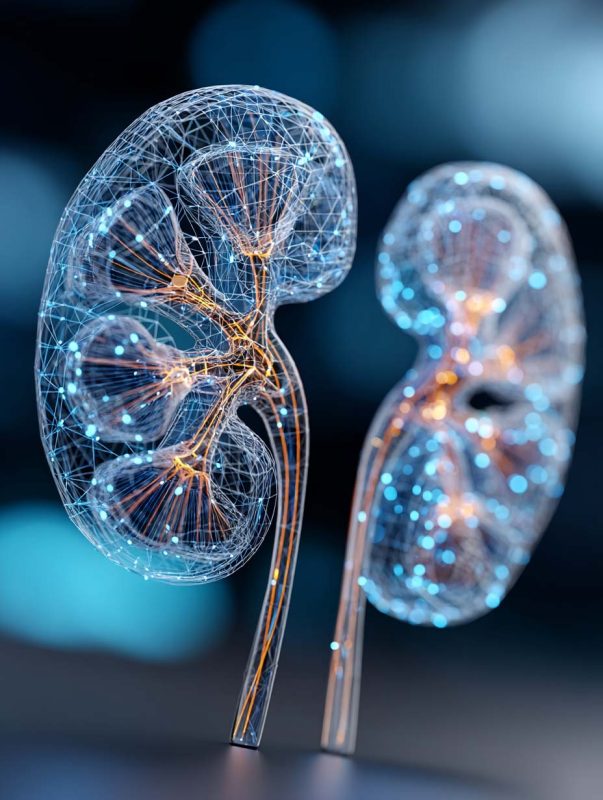When you’re living with chronic kidney disease (CKD), food choices can feel confusing—even overwhelming. A Registered Dietitian (RD) is a credentialed nutrition professional trained to translate renal nutrition guidelines into a plan that fits your labs, stage of CKD, and everyday life. Their goal isn’t just “what to avoid,” but how to eat in a way that protects kidney function, supports energy, and fits your preferences.
What is a Registered Dietitian—and how is that different from a “nutritionist”?
“Registered Dietitian” is a protected credential. RDs complete formal university training in nutrition/dietetics, an accredited clinical internship, pass a national registration exam, and maintain continuing education. By contrast, “nutritionist” isn’t a protected term in many places.
Why meet an RD early in CKD?
Early, ongoing nutrition care can help delay progression of CKD, manage complications (like acidosis, high potassium, and high phosphorus), and address common co-conditions such as diabetes, hypertension/cardiovascular disease, gout, and kidney stones.
It’s also practical: many people with CKD are willing to change their diet to avoid or delay dialysis—three in four agree medical nutrition therapy (MNT) is important to prevent progression, and nine in ten believe they can make nutrition changes to reduce complication risk.
What RDs do for kidney care
Medical Nutrition Therapy (MNT). MNT is an evidence-based, individualized nutrition plan for treating kidney disease. Your RD reviews current eating patterns (including sodium), looks at lifestyle factors (activity, stress, environment), and teaches renal nutrition guidelines tailored to your CKD stage, labs, and other conditions.
Behavior change support. Beyond “what to eat,” RDs help you adapt and stick with healthy patterns and overcome daily challenges—while keeping foods you love where possible.
In-person and telehealth options. Depending on state licensure, care may be offered in-person and via telehealth.
Ongoing monitoring. RDs follow you over time, reassessing, counseling, and aligning with your care team as your labs or life change.
Benefits you can expect
- Kidney protection: Slower progression of CKD with nutrition interventions appropriate to your stage and labs.
- Fewer complications: Nutrition strategies to prevent/treat acidosis, hyperkalemia, and hyperphosphatemia.
- Comorbidity management: Integrated plans for diabetes, high blood pressure/cardiovascular disease, gout, and kidney stones.
- Quality of life: Lower stress from “renal diet” worries, more energy, and room for favorite foods.
How to find (or refer to) a Registered Dietitian
You can search the Academy of Nutrition and Dietetics’ directory for RDs with kidney expertise.
If a clinician is referring you (or you’re a clinician referring a patient), share the medical history—including blood and urine test results—and set a plan for two-way communication with the RD so everyone stays aligned.
Will insurance cover RD services?
Medicare, Medicaid, and some private plans cover RD services for kidney disease. For CKD with eGFR 15–59 mL/min—and for 36 months after a kidney transplant—Medicare and Medicaid typically cover 2–3 hours of MNT per year. Check your plan details for specifics and options to add more hours if medically necessary.
Getting the most from your RD visit (quick tips)
- Bring recent lab results and a list of medications/supplements; ask your clinic to share results with the RD.
- Note your typical meals/snacks and where sodium sneaks in (restaurant foods, sauces, packaged items).
- Discuss daily routines—activity, stress, food access—so your plan fits real life.
- Schedule follow-ups; nutrition care works best with monitoring and adjustments over time.
Disclaimer
This article is for general education only and does not replace medical advice. Always consult your nephrologist and a Registered Dietitian for individualized guidance.
Source
Adapted from the American Kidney Fund provider guide on medical nutrition therapy and Registered Dietitians for kidney disease, including referral steps, coverage, and scope of practice.
- “The Climb” Hits Drohan Apartments: Scaling the Leaderboard in the Battle of the Buildings!
- DASH Diet for Seniors: A Simple Guide to Lowering Blood Pressure
- Warm Hearts in a Snowstorm: The Quincy BP Challenge Hits Tobin Tower
- Common Diabetes Symptoms in Seniors: What to Watch For
- The A1C Test: Understanding Your “Big Picture” Health


